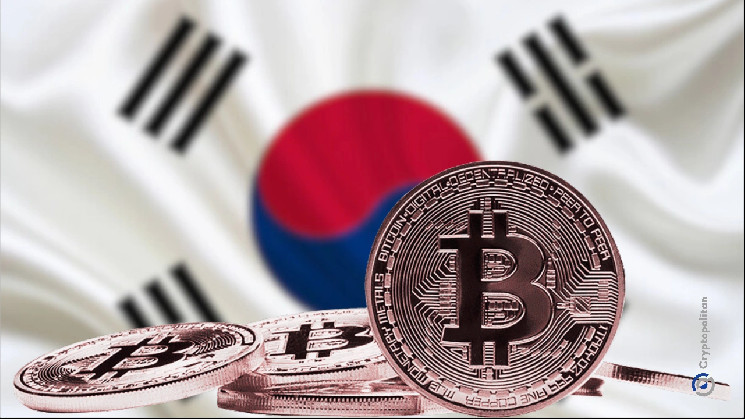Bitcoin (BTC) trades at an expanding premium on Upbit, as South Korean traders seek protection from the weakening national currency. Traders bought BTC as the South Korean won fell to a 15-year low against the US dollar.
Bitcoin traded with a widening premium on Upbit, one of the leading South Korean exchanges. While a premium on the Korean won pair is not unusual, this time, the disparity is growing.
BTC traded at $94,574.92 on most spot exchanges. On Upbit, the price was $96,722.63, keeping a gap of more than $2,000. The Bithumb premium was lower, with BTC trading at $96,571.21. Other trading pairs remained within their usual range, with minimal fluctuation.
The South Korean won premium increased rapidly on worries about currency devaluation. | Source: Cryptoquant
The Korean won markets make up just 1.78% of all BTC trading activity. More than 24.83% of trading is against the US dollar, while 51.46% is against USDT, with an intuitive dollar-based position.
Usually, the premium rises smoothly with the rest of the market, but the latest spike of the Korean won index signals a short-term rush to buy BTC. The Korean won slid more rapidly against the dollar from October onward, accelerating its decline and causing a shift to BTC as an offset.
Investors in South Korea flock to crypto in Q4
The Korean won has returned to levels not seen since the 2008 financial crisis, sparking worries about South Korea’s economy. The country is one of the key crypto hubs, where retail demand is high as a way to offset stagnant incomes. Based on recent data from the Bank of Korea, domestic crypto investors exceeded 15 million for the first time.
While South Korean investors have been highly active in previous bull cycles, the latest increase in activity started in the last months of 2024. Following the US elections and the accelerated losses of the won against the dollar, an additional 610K South Koreans made their first crypto purchases. As a result, roughly 30% of all South Koreans have invested in crypto coins.
Crypto investors used the top 5 centralized exchanges in the country, Upbit, Bithumb, Coinone, Korbit, and GOPAX. The exchanges are mostly closed to outside investors without a bank account in the country, which does not allow international traders to arbitrage easily. Those markets are also relatively conservative in listing new coins and tokens, so BTC still rules as an alternative investment.
South Korea added another layer of regulations under the Virtual Asset User Protection Act, which came into force in July. The new regulations also meant the country’s central bank tracked the crypto market more closely. This allowed the Bank of Korea to track the growth of crypto investors in the country for the first time.
According to Representative Lim Gwang-hyun of the Democratic Party of Korea, crypto markets are catching up to traditional stock markets in terms of volumes and retail activity. Volumes on South Korean virtual asset exchanges reached the equivalent of $100B in November, surpassing the country’s KOSPI and KOSDAQ markets.
Inflows to exchanges also accelerated in the past three months, showing demand for risky assets with high potential returns. South Korean traders have increased inflows to centralized exchanges every month in the past year.
The trend accelerated in the past few weeks, after the incident of declaring martial law for two hours, raising questions about the country’s political stability. There were also signs that crypto markets were not only catching up to stock markets, but investors were shifting their funds from shares into digital coins. Additionally, the KOSDAQ index has been sliding in the year to date, starting from 871 points in January and posting losses down to 675 points as of December 27.
Since tracking began, the number of new investors grew on average by 100K users a month. Total holdings for South Korean investors were around 58 trillion won in July, rising to over 100 trillion at the end of 2024, based on the BTC rally to a series of records. In the second half of 2024, individual holdings on average were under $2,500, doubling to over $5,000 after the Q4 rally.
A Step-By-Step System To Launching Your Web3 Career and Landing High-Paying Crypto Jobs in 90 Days.
Read the full article here

